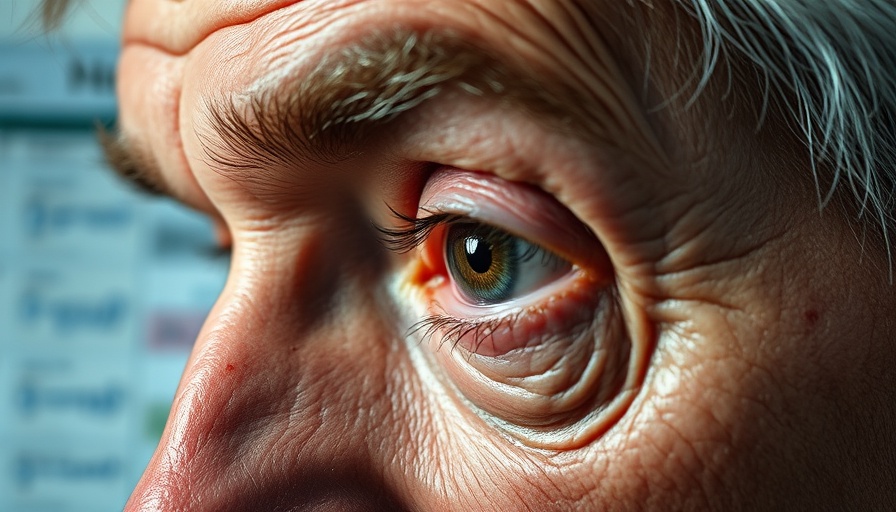
Connecting Eye Health to Dementia Risk
A groundbreaking study from the University of Otago has uncovered a fascinating link between eye health and the early detection of dementia risks. The research indicates that examining the blood vessels located at the back of the eye, known as retinal microvasculature, can provide valuable insights into an individual's cognitive health. This revelation opens a door to innovative approaches in the early assessment of dementia, a condition affecting millions globally.
The Role of Retinal Microvasculature in Alzheimer’s Disease
The Dunedin Multidisciplinary Health and Development Study, a comprehensive research initiative in New Zealand, utilized eye scan data from the participants in the age 45 assessment. Researchers noted that narrower arterioles and wider venules—small blood vessels related to blood circulation in the retina—were significantly associated with increased dementia risk. These findings highlight the retina's unique connection to the brain, potentially making it a reliable biomarker for identifying individuals at risk of dementia.
Innovative Approaches to Cognitive Health Monitoring
Current methods for detecting early signs of cognitive decline, such as cognitive tests and advanced imaging techniques like MRI or PET scans, often fall short. Such tools can be expensive, invasive, and may not be accessible to everyone. Dr. Ashleigh Barrett-Young, one of the co-leaders of the study, emphasizes the importance of identifying effective early intervention strategies. She noted that utilizing eye scans could dramatically improve our ability to detect those who would benefit from early treatment, particularly in the context of Alzheimer’s disease.
Potential for AI in Eye Health Assessments
Artificial intelligence (AI) is poised to revolutionize the way we approach health monitoring, including cognitive health. Imagine a future where a simple eye scan, augmented by AI analysis, could provide individuals with personalized insights regarding their brain health. While Dr. Barrett-Young believes we are not there yet, the prospect of using AI to scan the eyes for cognitive health indicators underscores the potential technological advances in this field.
What This Means for Business Professionals
The convergence of technology and health has crucial implications not only for individuals but also for industries and professionals. For CEOs, marketing managers, and business professionals, understanding the significance of such findings can lead to innovative practices within organizations. As health tech continues to evolve, businesses may find new ways to integrate wellness into employee programs, potentially improving productivity and job satisfaction.
Research Limitations and Future Directions
While the study presents exciting findings, it is essential to approach these results with caution. The research is still in its early stages, and the ability to predict individual outcomes based solely on eye health is not yet reliable. Dr. Barrett-Young cautions against causing undue alarm: “This research is still in its early stage, and we can't predict your future looking at an eye scan.” Nevertheless, the ongoing research could pave the way for significant advancements in dementia care as further studies are conducted.
Conclusion: The Future of Eye Health and Dementia Detection
The potential to link eye health with dementia risk presents an exciting frontier in cognitive health research. As science progresses, healthcare professionals may find new ways to utilize simple eye scans as effective early detection tools. This promising trajectory suggests that advancements in technology, combined with new research, will ultimately enable better preventative measures and foster healthier communities.
As businesses and professionals look toward the future, investing in health and wellness innovations will become increasingly crucial. The intersection of health and technology encourages the integration of smart practices while maintaining employee well-being at the forefront. Stay informed and ready to adapt to these transformative trends!
 Add Row
Add Row  Add
Add 




Write A Comment